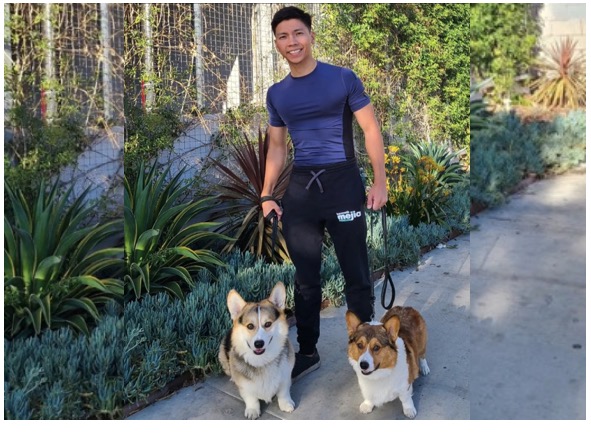CommentsDEEGAN ON LA—Could the election of an unknown, untried, self-promoting, self-proclaimed radical revolutionary as the incoming City Controller be seen as a bellwether for the state of LA politics today?
What powered that victory?
In a citywide race, Kenneth Mejia got more votes (513,190) as a city controller candidate than Karen Bass did for mayor (509,852).
Bass, herself, got more votes than any mayoral candidate in history. A syllogism suggests that Mejia got more votes than any mayoral candidate in history because he got more votes than Bass.
This is intoxicating stuff for the politico neophyte and his backers. Hallucinations of Mejia running for mayor himself in four years can’t be avoided, except for the truism that twenty-four hours is a long time in politics and that he has a lot to prove of himself as an officeholder. An incumbent Mayor Bass would be very hard to beat.
But a test of strength for his voters will be reflected in a special election on April 4 to fill the seat vacated by the resignation of then council president Nury Martinez (CD6), who was swept up in city hall scandal centering on a leaked tape recording showcasing her and council colleagues Gil Cedillo (CD1) and Kevin De Leon (CD14) as racists.
Cedillo was spared the humiliation of being ousted from his council seat by the scandal when he lost the primary election in June to Eunisses Hernandez, long before the damaging tape leaked. De Leon is still refusing to resign and is facing what will be a third attempt to recall him. Previous recall efforts did not have the frisson of his racist comments.
De Leon continues to draw his $218,000 salary, plus benefits and perks. Mejia ran on a platform that included defunding the police. Maybe he will find a way to defund De Leon while waiting for voters to unseat him. De Leon is currently on the city payroll, but not doing his job, until December 2024.
The far-left radicals that helped make Mejia an officeholder may have a chance to fill two more seats (CD6-formerly Martinez) and CD14-currently De Leon) and that’s when we’ll know exactly how hard the winds of change are blowing.
There’s no doubt that momentum favors the far left but, unlike the midterm elections in November, there are no major issues like control of Congress, a mayor’s race or the Roe v. Wade tailwind that created a surge in voters.
Primary elections are usually quiet affairs, and special elections even less noticeable. Election fatigue may also have an effect. But, the door knockers and social media teams that helped power radical left candidates into office (Hernandez in CD1 and Soto-Martinez in CD13) may do it again in April and truly shift the balance of power in the city council away from the old guard.
The ease of voting by mail (in the midterms in LA, over 80% of the votes were by mail), is a good incentive that makes the process of voting much easier. And, higher than usual turnout: forty-three percent of eligible LA voters casts ballots in the recent election.
Soon, we will know who the special election candidates are and get a sense of what organizational support they have. The filing window for special election candidates is from December 5 to 12. At press time, there were already one dozen announced prospective candidates. By January 4 they must submit their nominating petitions. Then, it's a ninety-day sprint to the finish line,
In April someone will be elected. It’s the post analysis of that event that will solidify, or challenge, the notion that the far left has seriously arrived at the table.
(Tim Deegan is a civic activist whose Deegan on LA weekly column about city planning, new urbanism, the environment, and the homeless appear in CityWatch. Tim can be reached at [email protected].)






